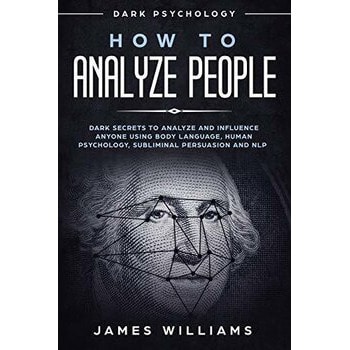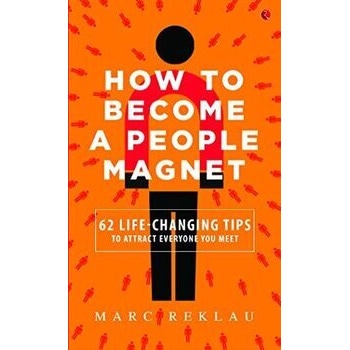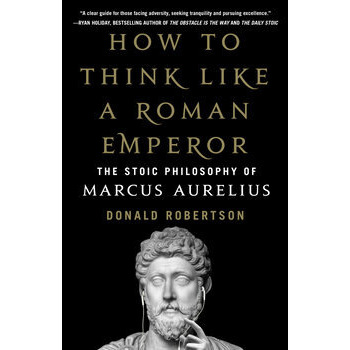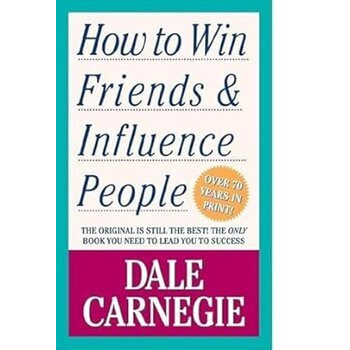How to Analyze People
"How to Analyze People" by James W. Williams is a practical guide that teaches readers the skills of observation and psychological analysis to understand others better. The book delves into various aspects of human behavior, body language, and personality traits, providing insights into how to interpret cues that reveal people's thoughts, feelings, and intentions. Williams offers techniques for reading emotions and motivations, enhancing interpersonal communication and relationships. By combining psychological principles with real-life examples, the book empowers readers to become more perceptive and empathetic, ultimately improving their interactions in personal and professional settings. This resource is ideal for anyone interested in psychology, social dynamics, or enhancing their communication skills.
How to be a Conservative
"How to Be a Conservative" by Roger Scruton is a thoughtful exploration of conservative philosophy and its relevance in contemporary society. Scruton articulates the principles that underpin conservative thought, including the importance of tradition, personal responsibility, and the value of community. He critiques modern liberalism and examines the complexities of political identity, arguing for a return to the foundational ideas that have shaped Western civilization. The book engages with a range of topics, from culture and politics to morality and aesthetics, emphasizing the necessity of conserving what is valuable in society while adapting to change. Scruton's insightful analysis and eloquent writing make this work a compelling read for anyone interested in the nuances of political ideology and the conservative perspective.
How to Become a People Magnet
*How to Become a People Magnet: 10 Simple Steps to Captivate, Charm, and Influence* by Marc Reklau is a practical self-help guide designed to help readers improve their social skills and build meaningful relationships. The book offers 10 actionable steps to enhance one's ability to connect with others, become more charismatic, and create lasting positive impressions. Reklau focuses on key principles such as active listening, showing genuine interest in people, building trust, and developing confidence. By following these steps, readers can improve their personal and professional interactions, whether in social settings, at work, or in leadership roles. *How to Become a People Magnet* is an accessible, straightforward resource for anyone looking to increase their influence, make deeper connections, and become more magnetic in their social circles.
How to Kill Your Family
*How to Kill Your Family* by Bella Mackie is a darkly comedic thriller that follows **Grace Bernard**, a young woman with a troubled past and a twisted sense of justice. Grace has spent most of her life in foster care, feeling abandoned by her wealthy family, and she harbors a deep resentment toward them. After years of simmering anger, she devises a devious and highly calculated plan to get revenge on each member of her family, using her intelligence and charm to eliminate them one by one. As Grace’s schemes unfold, the story delves into themes of family dynamics, betrayal, and the blurred lines between right and wrong. The novel combines suspense with biting humor, offering a sharp commentary on privilege, social class, and the desire for recognition. *How to Kill Your Family* is a provocative and entertaining read, filled with dark twists and a morally complex protagonist, perfect for fans of edgy, satirical thrillers.
How to Take Smart Notes
"How to Take Smart Notes" by Sönke Ahrens presents an effective system for note-taking based on the Zettelkasten method, developed by sociologist Niklas Luhmann. Ahrens emphasizes that effective note-taking is not just about recording information, but about engaging with it to enhance understanding and creativity. The book outlines practical techniques for organizing notes, linking ideas, and developing a personal knowledge management system. By cultivating a habit of smart note-taking, readers can improve their learning, writing, and critical thinking skills. Ahrens also discusses the importance of making connections between notes to foster deeper insights, ultimately making the process of learning more efficient and enjoyable.
How to Talk to Anyone
"How to Talk to Anyone" by Leil Lowndes is a comprehensive guide to improving social skills and enhancing communication in various settings. The book offers practical tips and techniques for engaging in conversation, building rapport, and making a lasting impression. Lowndes covers a wide range of topics, including body language, effective listening, and strategies for overcoming social anxiety. With actionable advice and relatable anecdotes, the book empowers readers to connect more confidently with others, whether in personal or professional situations. It's an invaluable resource for anyone looking to improve their social interactions and foster meaningful relationships.
How to Think Like a Roman Emperor
"How to Think Like a Roman Emperor" by Donald Robertson is a blend of philosophy and practical wisdom that draws on the life and teachings of Marcus Aurelius, one of Rome's greatest emperors and a Stoic philosopher. The book explores Stoicism as a way of life, offering insights into how to apply its principles to modern challenges. Through a combination of historical anecdotes, psychological concepts, and exercises, Robertson encourages readers to cultivate resilience, self-discipline, and emotional clarity. It's an empowering guide for anyone seeking to navigate life with the wisdom of one of history's most revered thinkers.
How to Win Friends and Influence People
"How to Win Friends and Influence People" by Dale Carnegie is a classic self-help book that provides timeless principles for effective communication and relationship-building. First published in 1936, it emphasizes the importance of empathy, understanding, and genuine interest in others as key components of successful interpersonal interactions. The book is divided into several sections, each offering practical advice on topics such as making a good first impression, handling disagreements, and influencing people without arousing resentment. Carnegie's insights are illustrated with real-life examples and anecdotes, making the strategies relatable and actionable. Ultimately, the book encourages readers to foster positive relationships and communicate effectively, making it a valuable resource for both personal and professional growth.
How to Win Friends and Influence People
"How to Win Friends and Influence People" by Dale Carnegie is a timeless self-help classic that offers practical advice on interpersonal skills and effective communication. First published in 1936, the book outlines key principles for building strong relationships, enhancing social skills, and influencing others positively. Carnegie emphasizes the importance of empathy, active listening, and genuine appreciation in fostering connections with people. Through engaging anecdotes and actionable tips, the book guides readers in navigating social interactions, whether in personal or professional settings. Its enduring popularity highlights its relevance and effectiveness in improving relationships and achieving success in various aspects of life.
Hunger
*Hunger* by Michael Grant is the second book in the *Gone* series, a young adult dystopian saga that explores a world where everyone aged 15 and older mysteriously disappears, leaving children to fend for themselves in a quarantined, walled-off area. The story picks up after the events of *Gone*, with the survivors trapped in the town of Perdido Beach, where they struggle to survive amidst chaos and an emerging sense of fear and power. As the story progresses, the characters face new challenges: the discovery of strange powers, food shortages, growing tensions between groups, and the looming threat of a mysterious, deadly force known as "the Darkness." The central conflict centers around the fight for control, resources, and survival, while some characters begin to develop supernatural abilities. *Hunger* is a tense, high-stakes continuation of the series, blending action, moral dilemmas, and psychological drama as the young protagonists battle not only external threats but their own inner demons. The book delves into themes of power, fear, and what it means to grow up in a broken world.
I AM NEAR
*I Am Near* by Ummah Welfare Trust is a heartfelt and inspiring book that highlights the humanitarian work of the charity in providing aid to communities in need, particularly in war-torn and impoverished regions. Through powerful narratives and real-life stories, the book illustrates the impact of the trust's initiatives, such as providing food, medical assistance, education, and disaster relief to vulnerable populations around the world. The title *I Am Near* is drawn from a Quranic verse, reflecting the sense of closeness and compassion that the organization strives to offer to those facing suffering and hardship. The book serves as both a call to action and a reminder of the importance of empathy, charity, and the shared responsibility to help those in need, regardless of their circumstances or location.
I Hope This Doesn’t Find You
*I Hope This Doesn't Find You* by Ann Liang is a contemporary young adult novel that explores themes of identity, family, and personal growth through the lens of social media. The story follows a teenage girl, often navigating the struggles of high school life, family expectations, and finding her own voice in a digital age where appearances and online personas often overshadow reality. The novel takes an honest and introspective look at the pressure of living up to societal standards and the impact of online interactions on mental health. As the protagonist grapples with her own insecurities and relationships, *I Hope This Doesn't Find You* provides a poignant commentary on authenticity, self-acceptance, and how we present ourselves to the world. It's a reflective and relatable story for readers navigating the complexities of modern life, technology, and the pursuit of happiness.












